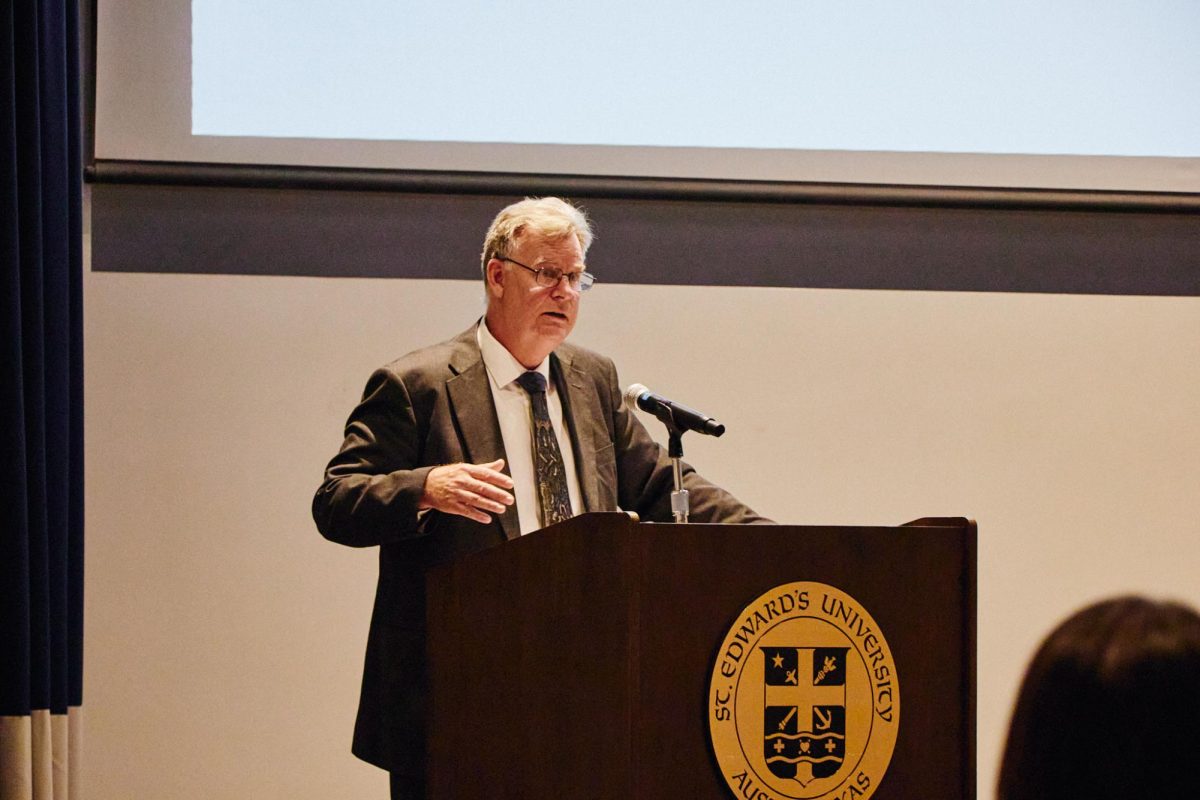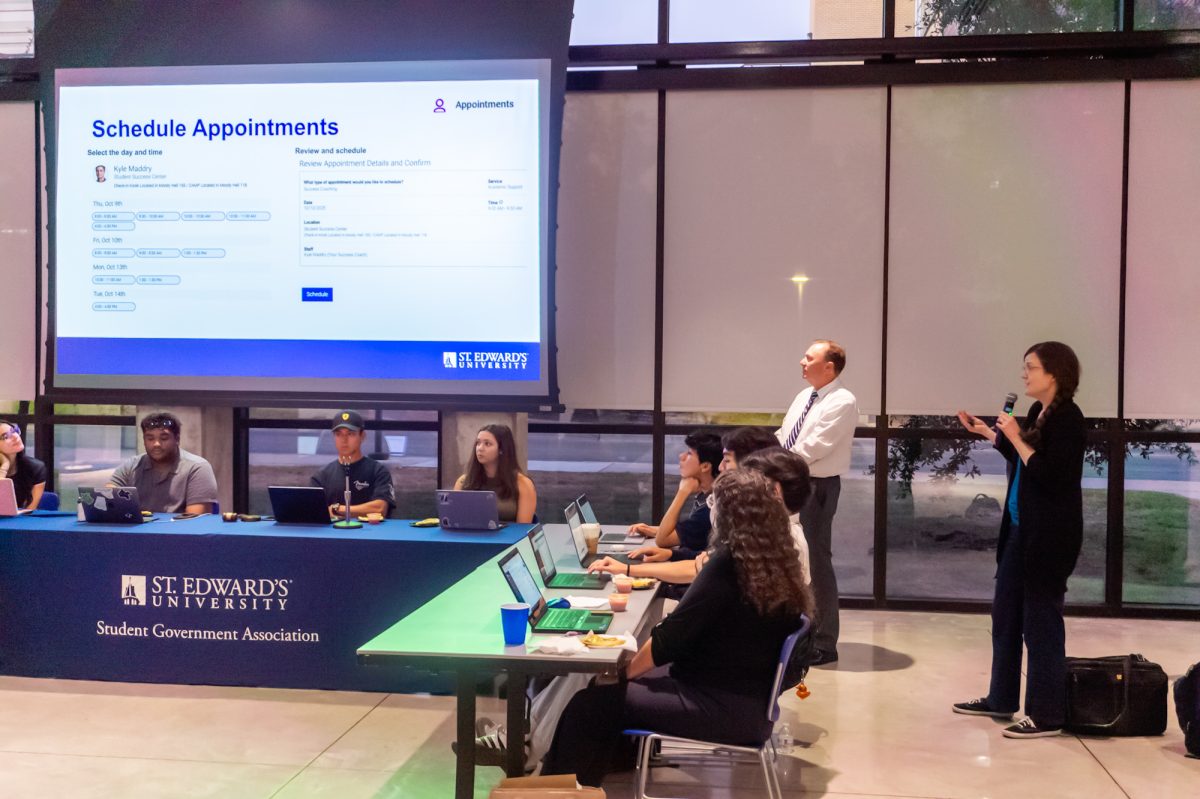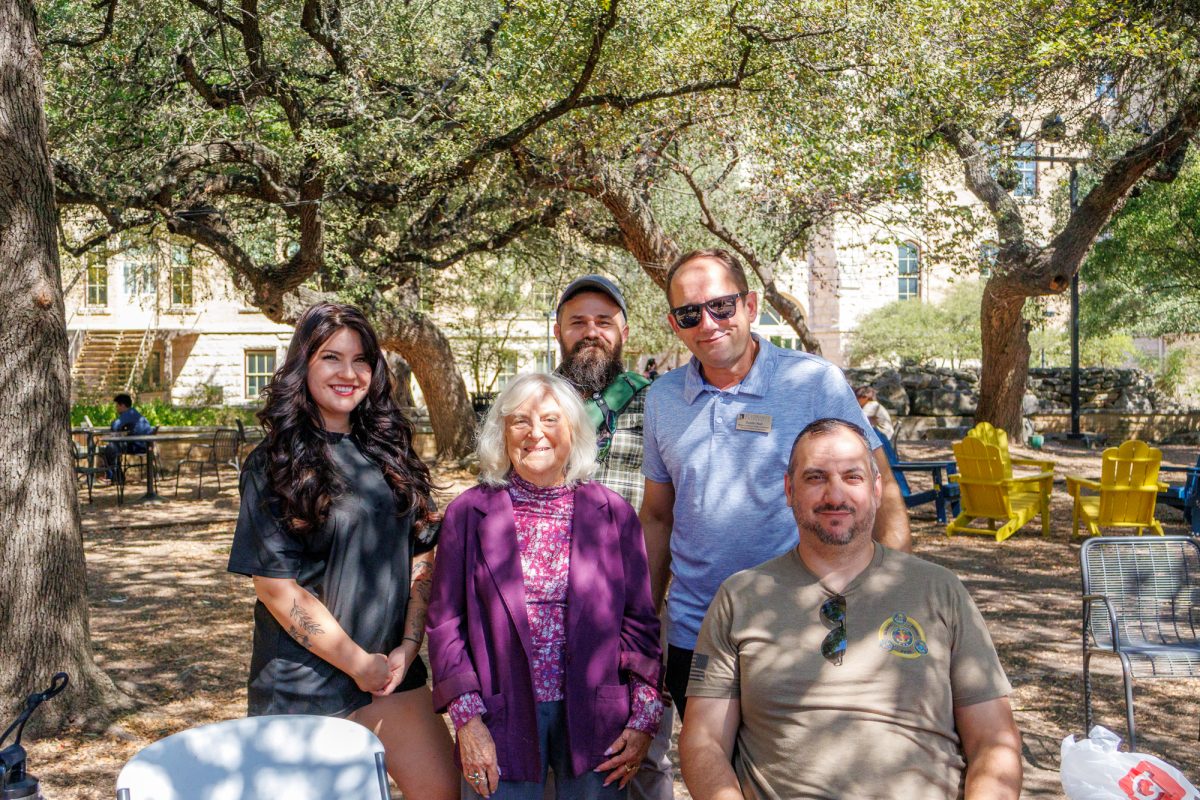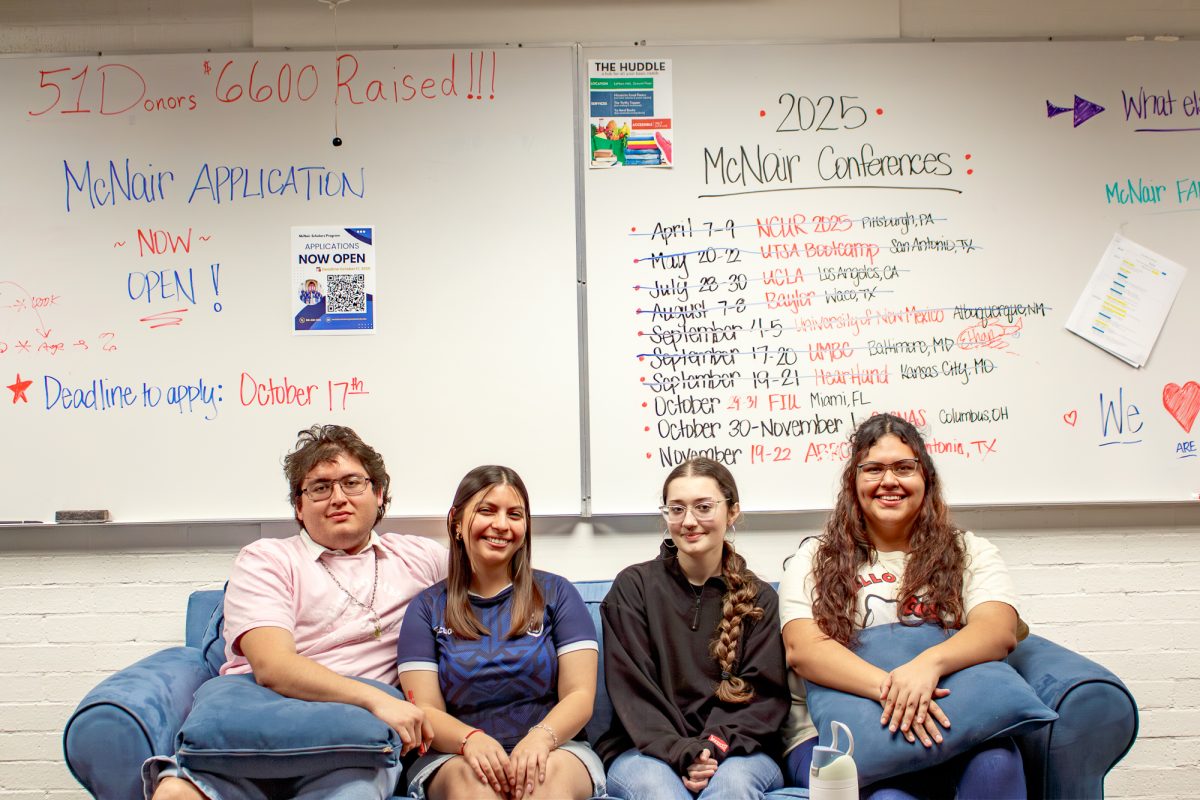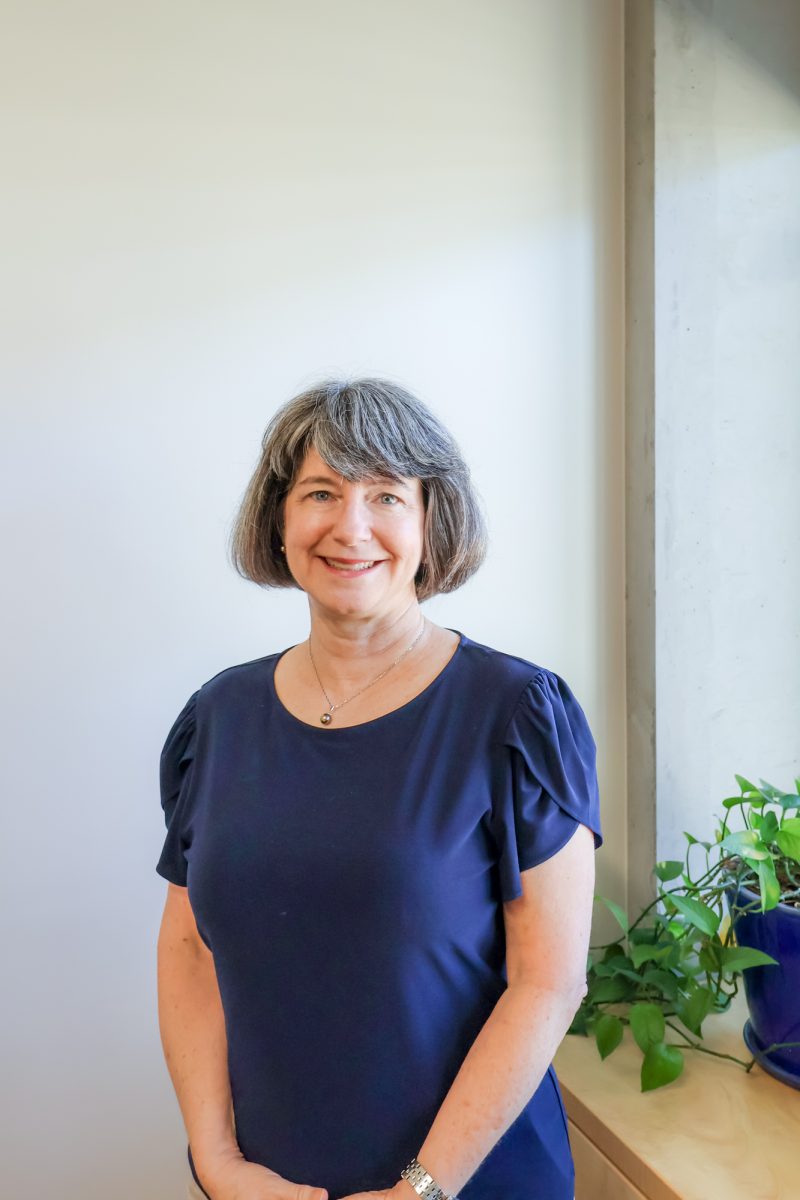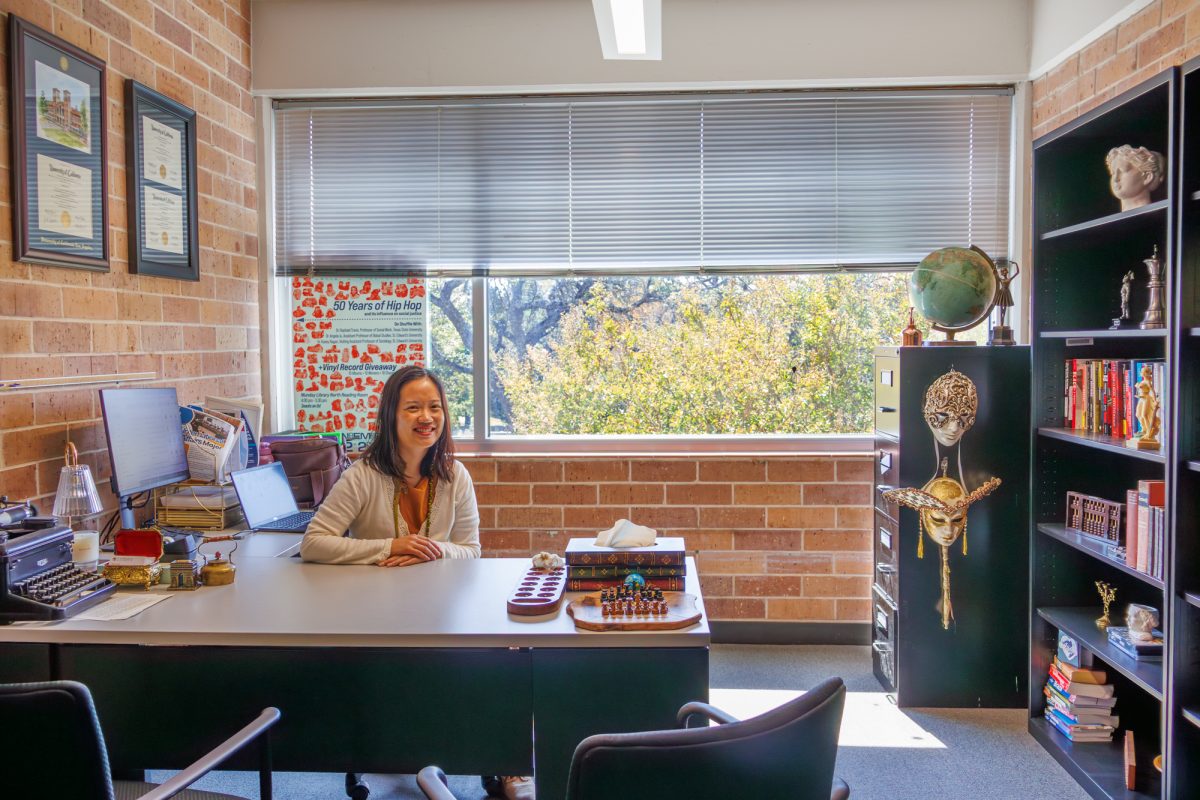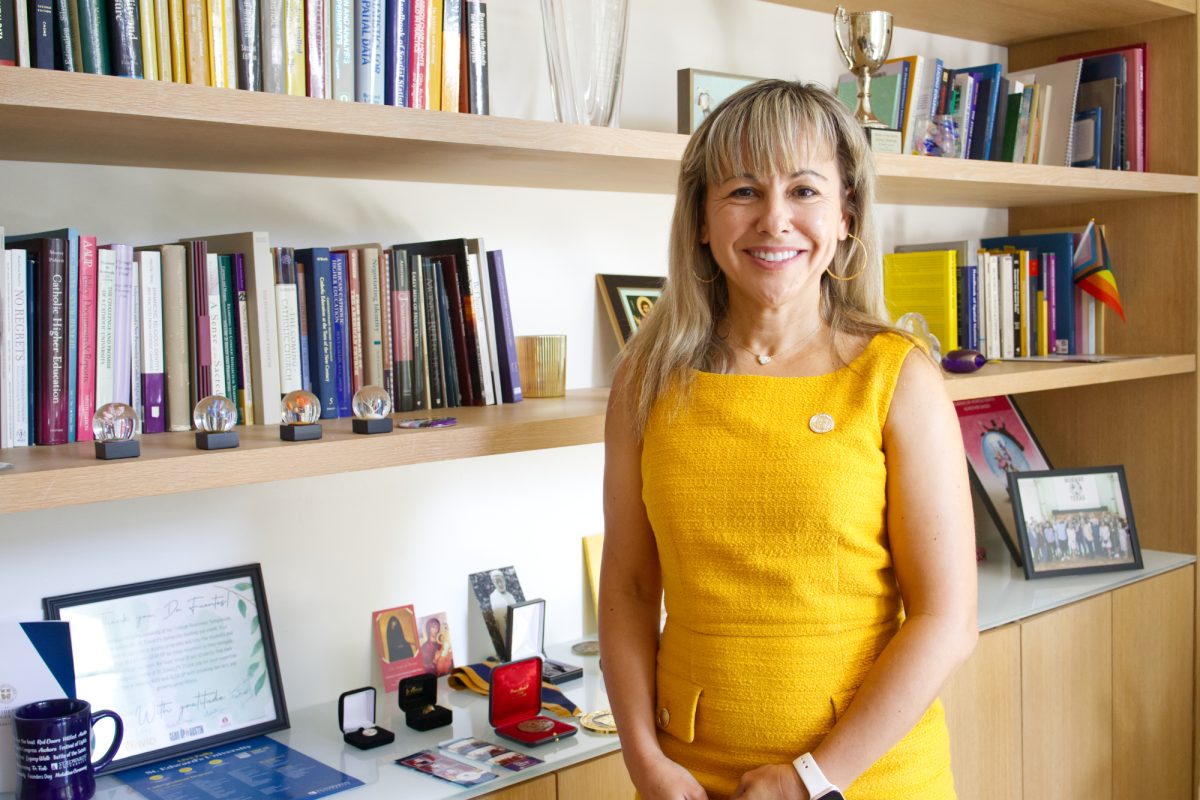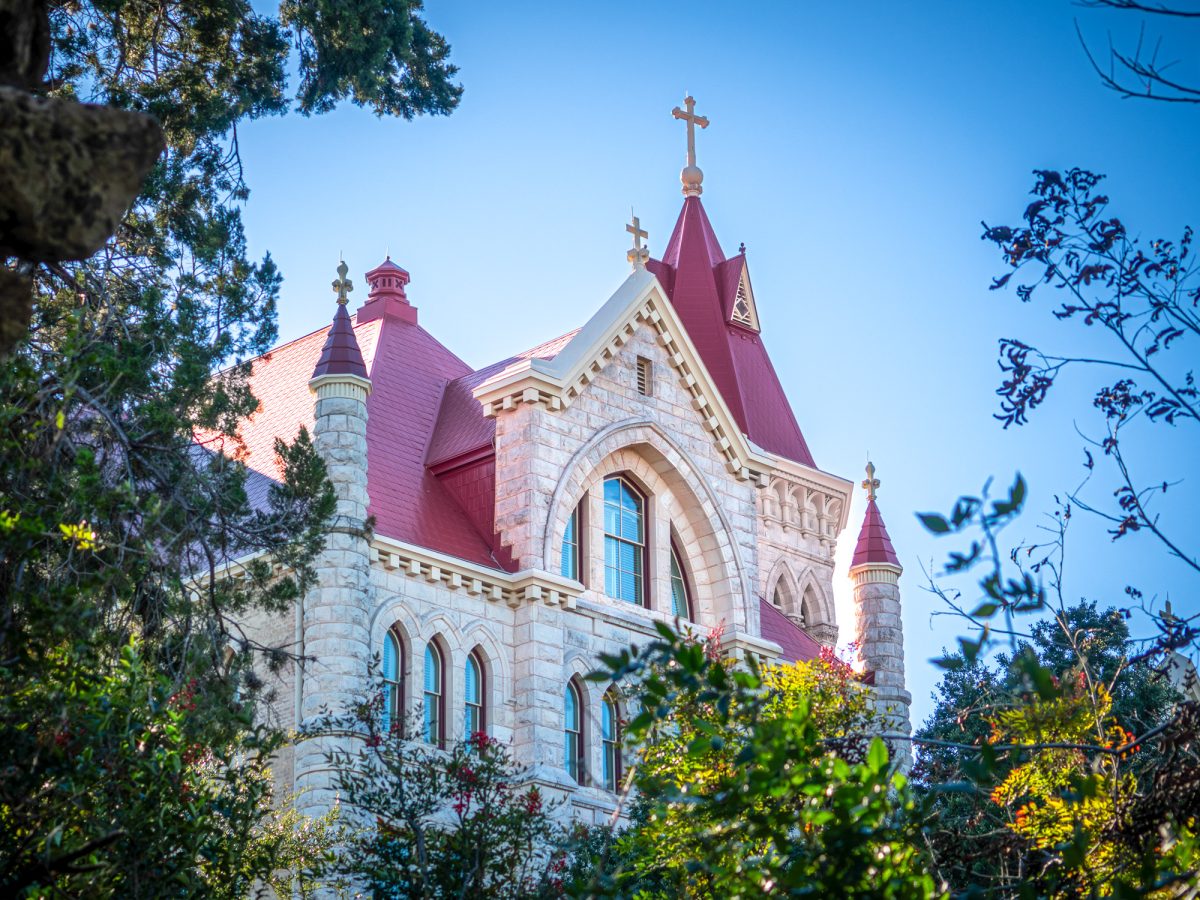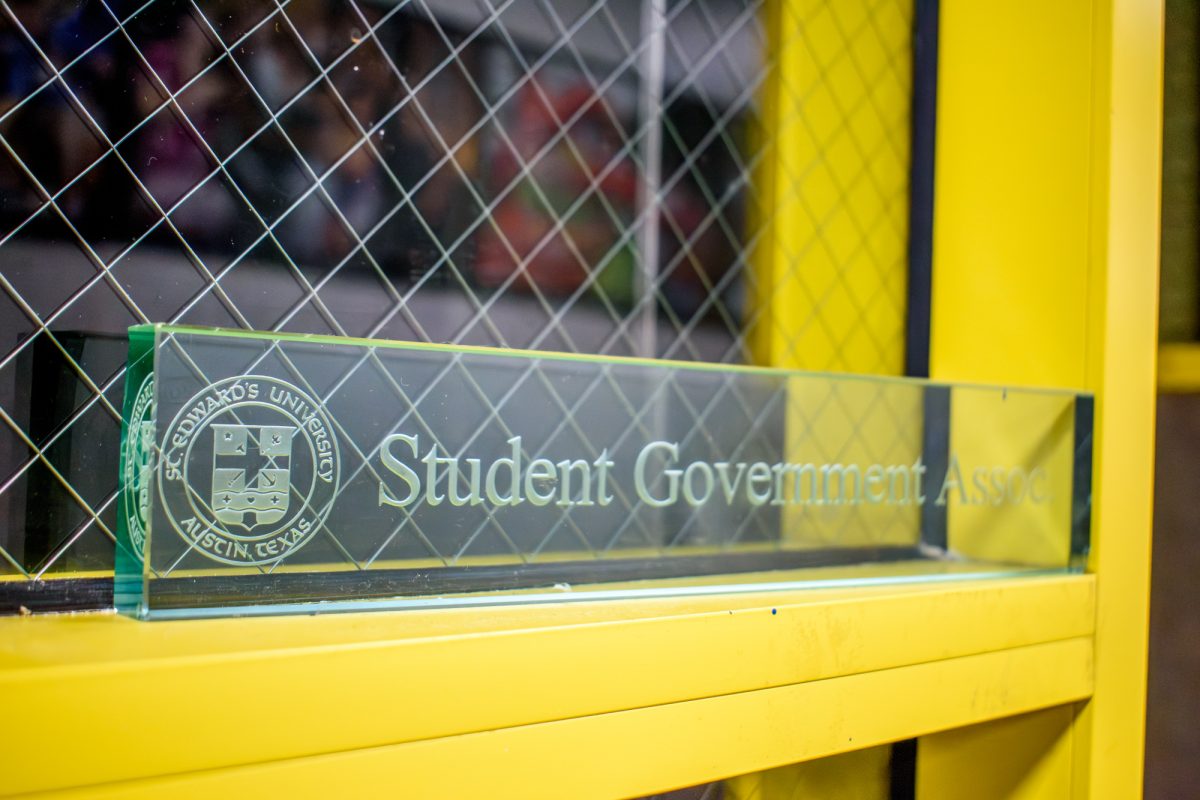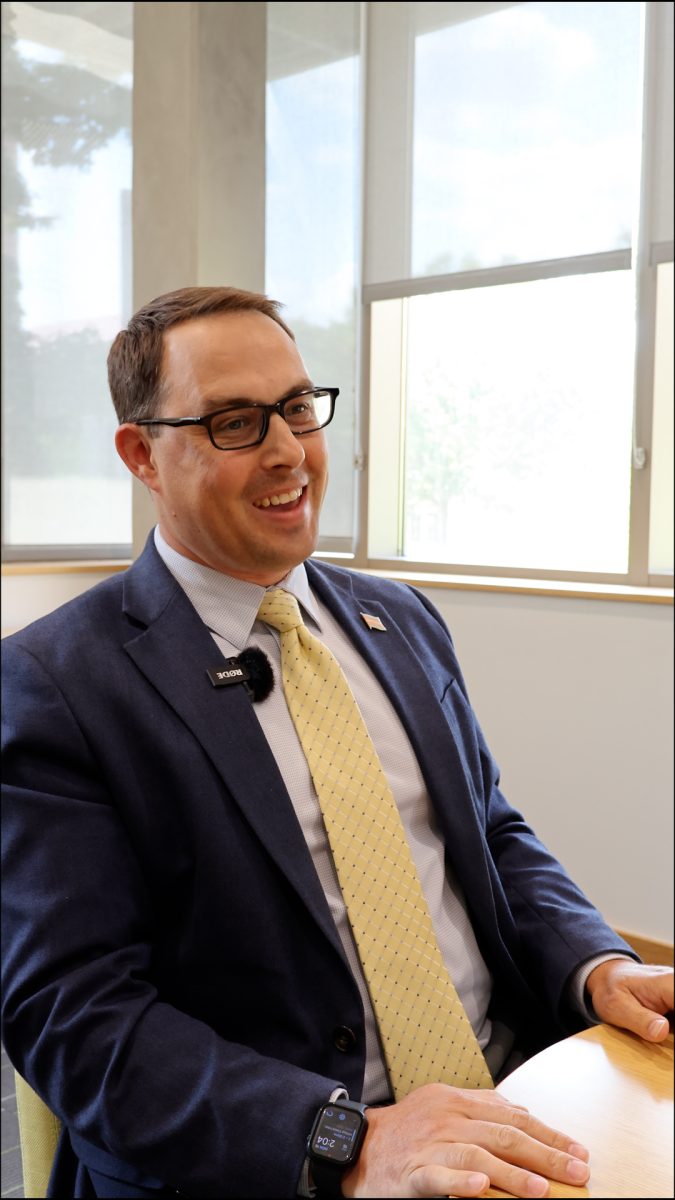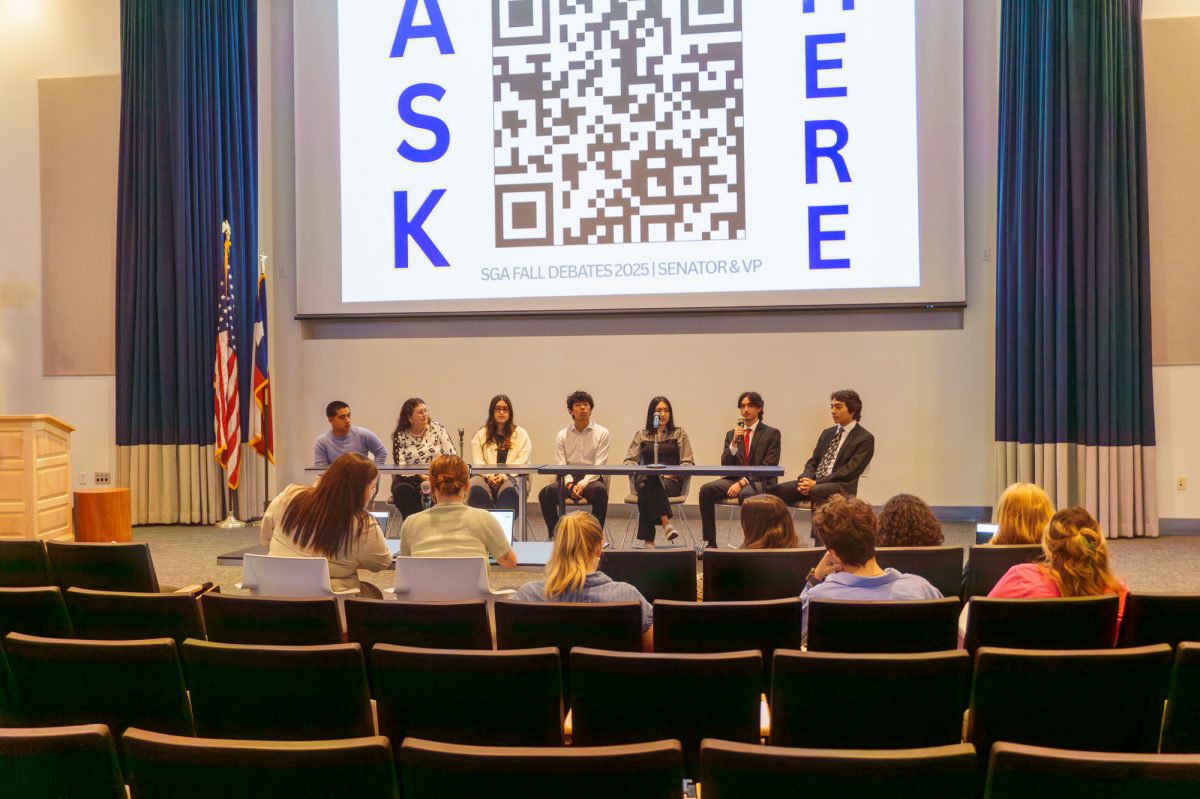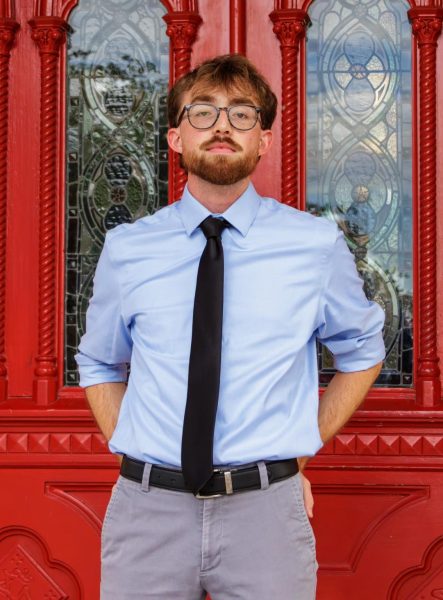Dr. John Martens, professor of theology at St. Mark’s College of the University of British Columbia, visited St. Edward’s on Oct. 3. Speaking in Jones Auditorium, Martens brought with him an explanation and extrapolation of Pope Francis’ goals and vision for the future of the Catholic Church.
Martens spoke as a part of “The Most Reverend John McCarthy Lecture Series on the Catholic Church in the 21st century.” This series of speakers is named for The Most Rev. John McCarthy, bishop of the Diocese of Austin from 1985 to 2001. Hosted by the School of Arts and Humanities, the lecture series brings in speakers from around the U.S. to share their thoughts on current issues regarding the Catholic Church.
Martens’ main focus was Francis’ idea of “synodality,” or accompaniment.
“The point is twofold,” Martens said. ”Of the first order is how Pope Francis is calling on us to accompany each other, both within the church and outside the church, and how that requires genuine human engagement. Second, Francis has challenged this church to be an evangelistic church.”
Martens intentionally grounded all of his main points in church texts to demonstrate the credibility behind his message.
A point that Martens stressed multiple times was the idea of being authentically present with others but without “proselytizing,” or forcing a belief onto others. According to Martens, Francis wants the members of the church to live their lives according to the Gospel and therefore deliver the message of Christ to others without delivering that message via force. This form of evangelisation is being pushed by the pope as a response to many Catholics’ hesitancy to evangelize considering past scandals involving the church.
“The church is not a community of perfect people, but the disciples on their journey who followed the Lord because they know they’re sinners in need of his pardon,” Martens said. “Thus, says Francis, Christian life is a school of humility, which opens us to grace.”
Martens does not shy away from the church’s wrongdoings in the past and explains that many of the pope’s efforts are to rectify the perceptions that many people hold against it. He further explains that Francis’ focus on mercy and acceptance is met with a lot of resistance because of the uncertainty it holds, but the hope is that it will be what ultimately helps the church stay alive.
“I think (their openness) is perfect,” senior attendee Scott Hodsden said. “Any organization that’s run by humans is going to have flaws, and it’s important to acknowledge those flaws and figure out ways to surpass them.”
All of this talk of “synodality” and a new mindset for the church is in preparation for a synod, a worldwide gathering of Catholic leadership hosted in the Vatican in Rome, Italy. The pope called together a large group of clergy, or church leaders, from across the world to discuss these new ideas. The synod began in the Vatican the day after Martens’ talk on Oct. 4.

